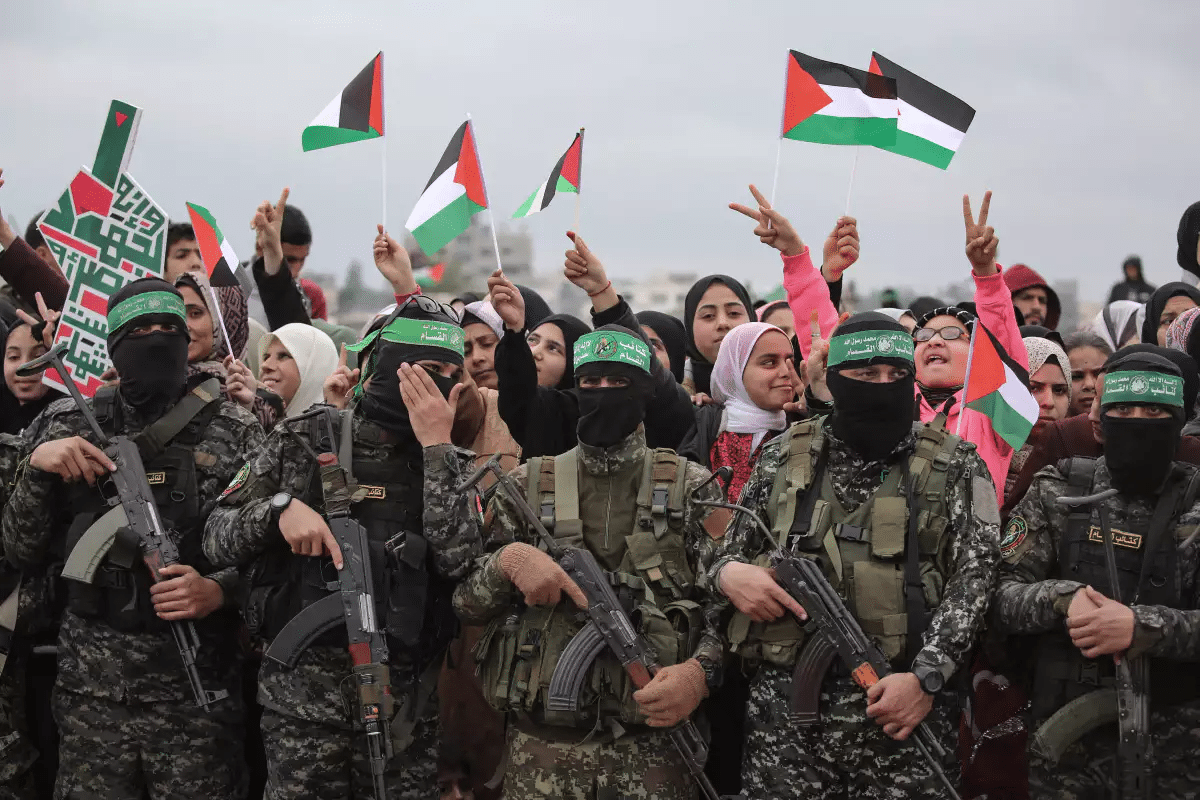Saudi warning: 'Qatar will bring Hamas back'
Saudi Arabia, the United Arab Emirates, and Bahrain are worried about the major role given to Qatar in President Donald Trump's plan for Middle East reconstruction. A senior Saudi official told Israel Hayom that "excessive Qatari involvement will lead to the plan's collapse."
Danny Zaken
Israel Hayom
Oct 12, 2025

"A long road to normalization"
A Saudi diplomatic source told Israel Hayom that normalization with Israel remains on the table, but "it will not happen within months. It's a long road that requires seeing the agreement implemented in full, including Israel's commitments to the Palestinian Authority and serious negotiations toward a two-state solution. We will make sure the Palestinian Authority fulfills its obligations, but Israel, regardless of its coalition, must honor what Netanyahu agreed to."
Asked whether he believes the current Israeli coalition will promote a long-term arrangement with the Palestinians, the official said: "We've all heard the extremist ministers in this government. Netanyahu, or the next government, will have to decide whether they support extreme measures like annexation or genuinely want a real solution that will eventually bring calm." Regarding Qatar, the Saudi source was blunt: "It's a mistake to rely on Qatar, which backs the Muslim Brotherhood."
"Excessive Qatari involvement in the next stages of the plan and Gaza's reconstruction will cause Trump's plan to collapse," he warned. "Qatar's interests are different, it will undermine deradicalization efforts and try to ensure that Hamas remains in the picture and returns to power in the not-so-distant future."
Assuming the hostages' release wents smoothly, Israel is entering the next phase without much optimism. Many involved believe Hamas will refuse to give up its weapons, control of Gaza, or continued terrorism against Israel. Pessimism is also fueled by the militant statements of Hamas leaders, who are trying to salvage their image in the Arab and Palestinian world after the devastating destruction caused by the war in Gaza.
Hamas retaliation
Hamas' actions on the ground, such as the massacre of the Durmush clan, armed shows of force in the streets, and executions of alleged collaborators, reinforce this concern. Security sources confirm that in some areas under or near IDF control, Israeli forces have intervened to prevent Hamas revenge attacks, and several terrorists were killed in such incidents.

Hamas terrorists in the Gaza Strip
Israel's political and military echelons are preparing for Hamas violations and the likelihood that it will insist on remaining armed, alongside the ongoing negotiations for the second phase. Officials in Jerusalem fear it will not be easy to convince Washington of the need to resume fighting against Hamas, even though the Americans have so far coordinated closely with Israel. This concern grew following Egyptian President Abdel-Fattah el-Sissi's event in Sharm el-Sheikh with President Trump, a gathering viewed as marking the formal end of the war.
"A ceremonial event"
Washington has sought to play down the significance of the Sharm summit, to which Israel was not invited. In discussions between the White House and the Prime Minister's Office, with Steve Witkoff also participating, US officials told Israel that the event was merely a ceremonial signing of the first stage of Trump's plan, serving as a foundation for the next phase. Behind the scenes, Jerusalem demanded clarifications from both Washington and Cairo and was assured that no substantive decisions would be made at the event. Still, US officials acknowledged that the event effectively signified the war's conclusion.
The summit has negatively affected Israel-Egypt relations, following harsh criticism in Israel over Egyptian involvement in weapons smuggling to Hamas. Nevertheless, the message emerging from Sharm el-Sheikh was also directed at Hamas: its time is up, and Gaza's reconstruction as part of a broader regional transformation will not include it. Optimistic officials say Hamas will eventually have no choice but to give in, as Israeli withdrawal and reconstruction under Trump's plan will not proceed until it relinquishes its weapons and control.
Meanwhile, the multinational force expected to take responsibility for Gaza and the international body meant to oversee the territory, together with a reformed Palestinian administration, have yet to be established. Both Israeli and American sources say the next phase will take many months and expressed concern that in the interim, military incidents could flare up again and spiral into a renewed conflict.
No comments:
Post a Comment